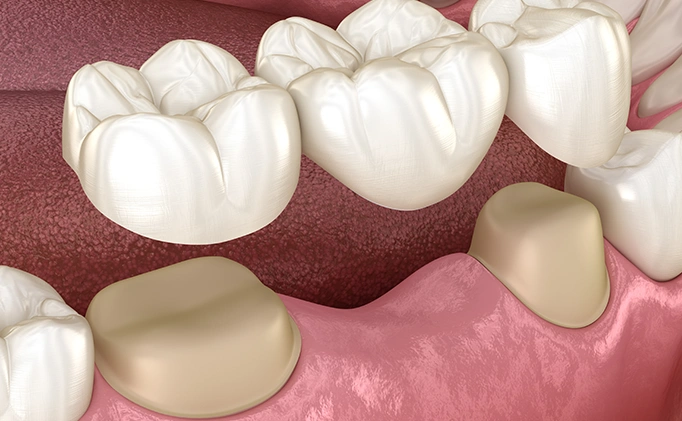
Dental Bridge London
A dental bridge is a solution for replacing missing teeth. Using modern techniques and materials, we can offer the least invasive forms of dental bridges at Bayswater Dental Clinic. The clinic is conveniently located in central London.
One of the oldest techniques available for replacing missing teeth is the dental bridge procedure. Over the years, with advances made in dental materials and techniques, many different types of dental bridges have been developed. The most common types of dental bridges offered can be placed in three categories.
Fixed-Fixed Conventional Dental Bridge
A fixed dental bridge for front teeth uses the natural teeth on either side of a gap, known as abutment teeth, to replace the missing tooth or teeth in between. These abutment teeth are covered with crowns that are fused to an artificial tooth, effectively restoring the missing front tooth while maintaining both function and aesthetics. The conventional dental bridge can replace one or more missing teeth. This type of dental bridge is permanently cemented to the abutments and hence the term fixed – fixed bridge.

Advantages:
- The conventional dental bridge can last a long time, 7-10 years or more
- It is more durable than some alternatives
- This type of dental bridge is less likely to come off in comparison with some other types
Disadvantages:
- It may need drilling on both abutment teeth
- De-bonding of one abutment can damage the other abutment
- The conventional dental bridge needs good dexterity for keeping good oral hygiene
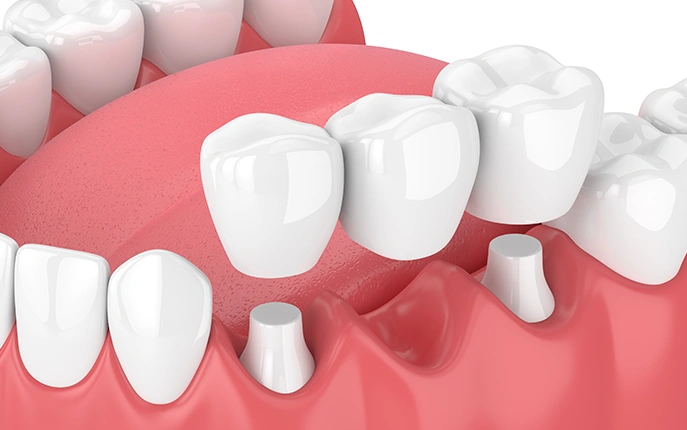
Fixed-Movable Dental Bridge
This type of dental bridge is based on the same principle as fixed-fixed bridges. However, at one end of the fixed-movable dental bridge, there is a mechanism of a “dovetail, male and female device” that is added to the dental bridge. This allows some flexibility and movement of the abutment teeth.
The advantage of this type of dental bridge is that it is less likely for one abutment to debone and this dental bridge usually has a better longevity than fixed-fixed dental bridges where abutment teeth have no movement and are locked together with the bridge.
The disadvantage is the higher cost of this type of dental bridge.
Fixed-Cantilever Dental Bridge
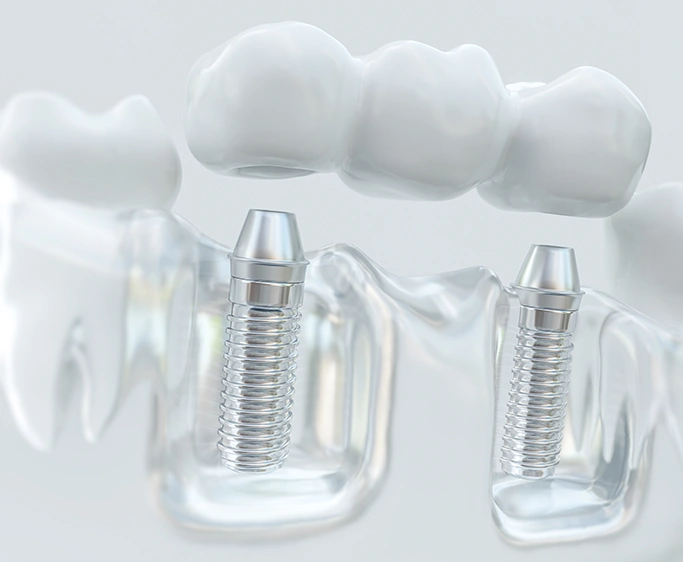
In this type of dental bridge, only one tooth on the side of a gap is used which act as the abutment of the bridge. One crown is cemented to the abutment tooth and one false tooth is fused to that crown, making the total length of the dental bridge two units. The abutment tooth is usually a big tooth that supports a smaller sized tooth in front of it. This bridge is, therefore, fixed on one side and the false tooth replacing the missing tooth is cantilevered off it.
Advantages:
- There is less drilling of teeth and thus it is a more convenient option
- The fixed-cantilever dental bridge is cost effective
- It is easier to keep a good oral hygiene with this type of dental bridge
Disadvantages:
- Drilling on one abutment tooth is still necessary
- It is not always possible to implement a fixed-cantilever dental bridge as strong abutment tooth is needed
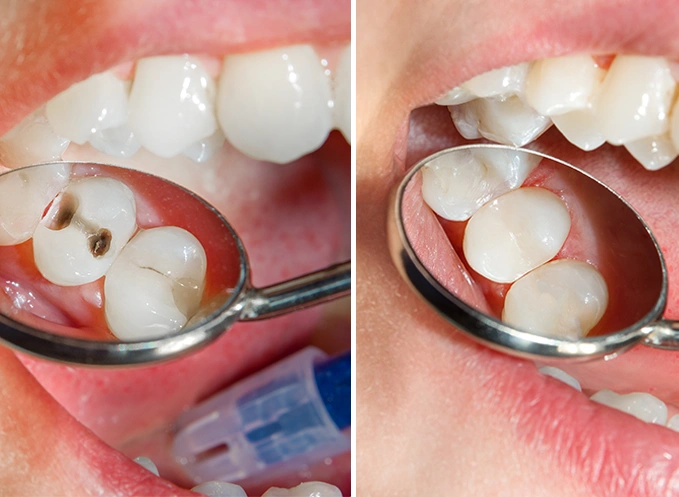
Adhesive Dental Bridge
This type of dental bridge was developed when substantial advances were made in types of dental cements. In this type of bridge, also known as Maryland dental bridge (as first it was thought of and was designed in Maryland, USA), a metal wing is used that supports a false tooth. The wing is then cemented on the back of an abutment tooth next to the gap. A bridges dentist may recommend this option as a conservative solution, and in certain situations, it can also serve as an emergency dental bridge to quickly restore appearance and function until a long-term treatment is planned.
Advantages:
- No drilling or very minimal drilling of the abutment tooth is necessary
- It is cost effective
Disadvantages:
- There is a higher de-bonding rate as they only rely on the cement strength.
Alternative Options To Dental Bridges
The alternative options to a dental bridge procedure for replacing missing teeth can be either removable prosthesis, otherwise known as dentures, or false teeth, or implants.
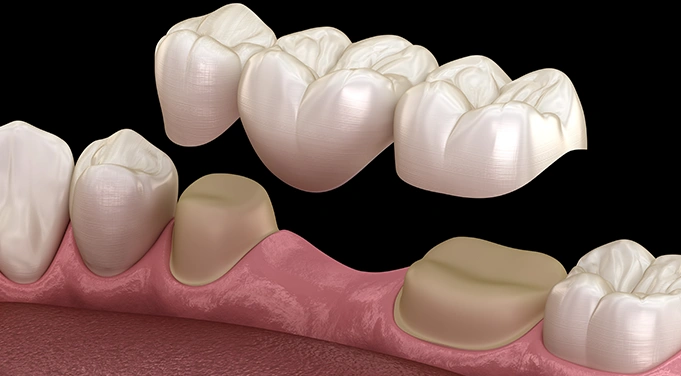
Dental Bridges Cost
The preparation of the teeth for a dental bridge is a difficult and very skilled procedure. In addition, highly experienced dental technicians are needed to make the dental bridge. Therefore, dental bridges can be costly. The type of materials used for the dental bridge can greatly influence their cost, similarly to dental crowns.
At Bayswater Dental Clinic, all of our fees for bridges are published on our website. However, as a guide, they start from £595 / unit of the bridge. In our clinic, we offer up to 18 months 0% finance to assist our patients with the cost of their dentistry.
At Bayswater Dental Clinic we offer top high quality aesthetic dental bridges to replace missing front teeth.
We offer all-ceramic dental bridges with high strength and durability.
Where possible, a dental bridge is an alternative to implants or dentures.
We offer up to 18 months 0% finance to help with the cost of a dental bridge.
- Monday 09:00AM - 08:00PM
- Tuesday 09:00AM - 08:00PM
- Wednesday 09:00AM - 08:00PM
- Thursday 09:00AM - 08:00PM
- Friday 09:00AM - 08:00PM
- Saturday 09:00AM - 08:00PM
- Sunday 09:00AM - 04:00PM






